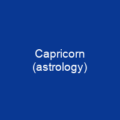What is a Horoscope and Why Does It Matter?
Imagine peering into the heavens above you, trying to decipher the secrets of your destiny through the positions of celestial bodies. That’s what a horoscope does—it’s like a cosmic map that claims to reveal insights about your life based on the alignment of stars at the moment of your birth.
The Origins and Usage of Horoscopes
Where did this practice come from, and why do so many people still believe in it?
A horoscope is an astrological chart or diagram representing the positions of celestial bodies at a specific moment. The word ‘horoscope’ comes from Greek words meaning ‘time’ and ‘observer.’ It’s fascinating to think that something as ancient as astrology can still capture our imaginations today, with many newspapers and magazines featuring horoscopes in their pages.
Common Usage of Horoscopes
Are the horoscopes you read in your daily newspaper really based on celestial influences?
In common usage, a horoscope often refers to an astrologer’s interpretation based on solar Sun sign astrology or Chinese astrology. While many newspapers and magazines carry predictive columns that may not be directly tied to celestial influences, they still offer a form of guidance for their readers.
Horoscopes in Hindu Astrology
How do horoscopes play a role in Hindu culture?
In Hindu astrology, birth charts called kundalis are used for auspicious events such as marriage. These charts provide detailed insights into the timing and significance of various life events based on the positions of celestial bodies at the time of birth.
The Skepticism Surrounding Horoscopes
Are there any scientific studies that support the accuracy of horoscopes?
There are no scientific studies showing support for the accuracy of horoscopes, and methods used for interpretations are considered pseudoscientific. Modern scientific framework has shown no interaction between a person and the position of stars in the sky at the moment of birth.
The Four Primary Angles in a Horoscope
What do these angles represent?
A horoscope serves as a stylized map of the heavens over a specific location at a particular moment in time. The emphasis and interpretation of these factors vary with tradition, but there are four primary angles that influence key areas of a native’s life:
- First House (Ascendant, East Angle)
- Tenth House (Midheaven, North Angle)
- Seventh House (Descendant, West Angle)
- Fourth House (Imum Coeli – South Angle)
The Zodiac and Its Significance
How does the zodiac fit into horoscopes?
The Zodiac is a 16-degree wide zone in space projected onto the celestial sphere, divided into 12 signs, each 30 degrees longitude. The tropical zodiac defines the vernal point as the first degree of Aries; however, the sidereal zodiac allows it to precess due to the Earth’s axis wobble.
Constructing a Horoscope
How do astrologers create these charts?
To create a horoscope, an astrologer must determine the exact time and place of birth, then convert it to Greenwich Mean Time or Universal Time. An ephemeris is used to list the location of planets for a particular year, date, and sidereal time. Planets are shown in relation to their visibility above the horizon at the precise time and place.
Aspects and Their Importance
What role do aspects play in horoscopes?
Aspects, such as relative angles between pairs of planets, are considered to complete the horoscope. Those generally recognized by the astrological community include Conjunction (0°), Opposition (180°), Square (90°), Trine (120°), Sextile (60°), Semi-Square (45°), Sesquisquare (135°), and Quincunx (150°). These aspects are more significant when they are exact, but they are considered to function within an orb of influence.
The Skepticism and Rejection of Horoscopes
Why do scientists reject horoscopes?
Most modern astrologers use an orb of 8° or less for aspects involving the Sun, Moon, and Jupiter and smaller orbs for the other points. Some astrologers, such as practitioners of Cosmobiology and Uranian astrology, use minor aspects with much narrower orbs.
Vedic Hindu Astrology
How does Vedic Hindu Astrology differ from Western horoscopes?
The major astrological system regarded universally is Vedic Hindu Astrology. As per this, all planets see just opposite i.e., 180-degree aspect. But Mars, Jupiter, and Saturn have special aspects: Mars sees the houses 4th and 8 too from its place in the horoscope, Saturn sees the houses 3 and 10 too from its place, and Jupiter sees 5 and 9 from its place in the horoscope i.e., the house in which they are posited in the lagna chart.
The Ascendant: A Key Element
Why is the ascendant so important?
The ascendant (ASC) is a point on the ecliptic that rises on the eastern horizon at sunrise and changes as the earth rotates on its axis. The ascendant is very important in astrological chart interpretation because it exerts more power than the Sun, Moon, and planets because it infiltrates everything in the natal chart.
Chinese Horoscopes
How do Chinese horoscopes differ from Western ones?
Chinese horoscopes are based on the symbolism of the Chinese zodiac, a system of elements and animals associated with each year according to a Sexagenary cycle. These horoscopes often appear in horoscope sections in newspapers and magazines alongside Western horoscopes.
The Skepticism and Rejection of Horoscopes
Why do scientists reject horoscopes?
Interest in horoscopes and the zodiac sign has been very popular throughout history and today. There are many faithful followers, from celebrities to the general public. However, the use of natal birth charts to predict personality is not valid or reliable.
Scientific Studies on Horoscopes
What do scientific studies say about horoscopes?
A double-blind study tested the zodiac’s reliability to predict personality and found that astrologers were unable to correctly match a person’s zodiac sign to their CPI result beyond random assignment. Using the zodiac sign for horoscopes is also unreliable, with predictions often being unrelated to each other.
The Rejection by Science and Religion
Why do science and religion reject astrology?
Horoscopes have been rejected by the scientific community as they are based on inaccurate assumptions about star movement and lack scientific evidence. Astrology has no verifiable mechanism behind it and follows no scientific method, making it impossible to classify as science. Christianity also rejects astrology, citing biblical passages that advise against using horoscopes for guidance or foretelling the future.
Confirmation Bias
How does confirmation bias play a role in people’s beliefs?
People’s expectations can lead them to bias their perceptions, confirming their own beliefs. This is why some people still find value in horoscopes despite the lack of scientific support.

While horoscopes may offer a sense of guidance and direction, it’s important to approach them with a critical eye. Whether you believe in their power or not, understanding the history and science behind them can provide valuable insights into human psychology and cultural practices.
You want to know more about Horoscope?
This page is based on the article Horoscope published in Wikipedia (retrieved on March 15, 2025) and was automatically summarized using artificial intelligence.






